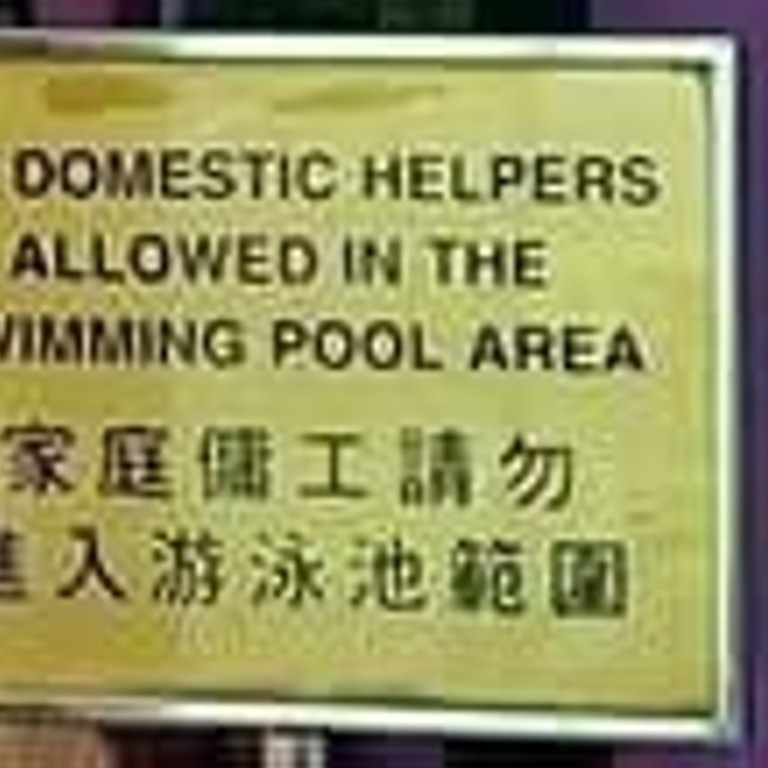
‘No domestic helpers allowed’ sign at Hong Kong private club called discriminatory
Ban on domestic helpers entering a pool area at Clearwater Bay Golf and Country Club prompts criticism online, while migrant workers’ group says it is a long-standing issue across the city
The sign erected at the Clearwater Bay Golf and Country Club states: “No Domestic Helpers Allowed In The Swimming Pool Area”.
Hong Kong should love its foreign domestic helpers, so they will love Hong Kong
“Clearly racist … someone should report this,” wrote one person.
“Come on HK, we are not living in the past. We are global people and we should not allow this centuries old practise to occupy our minds. We should set good examples to our next generation by respecting each other no matter what’s your status in life. Peace to all!” another wrote.
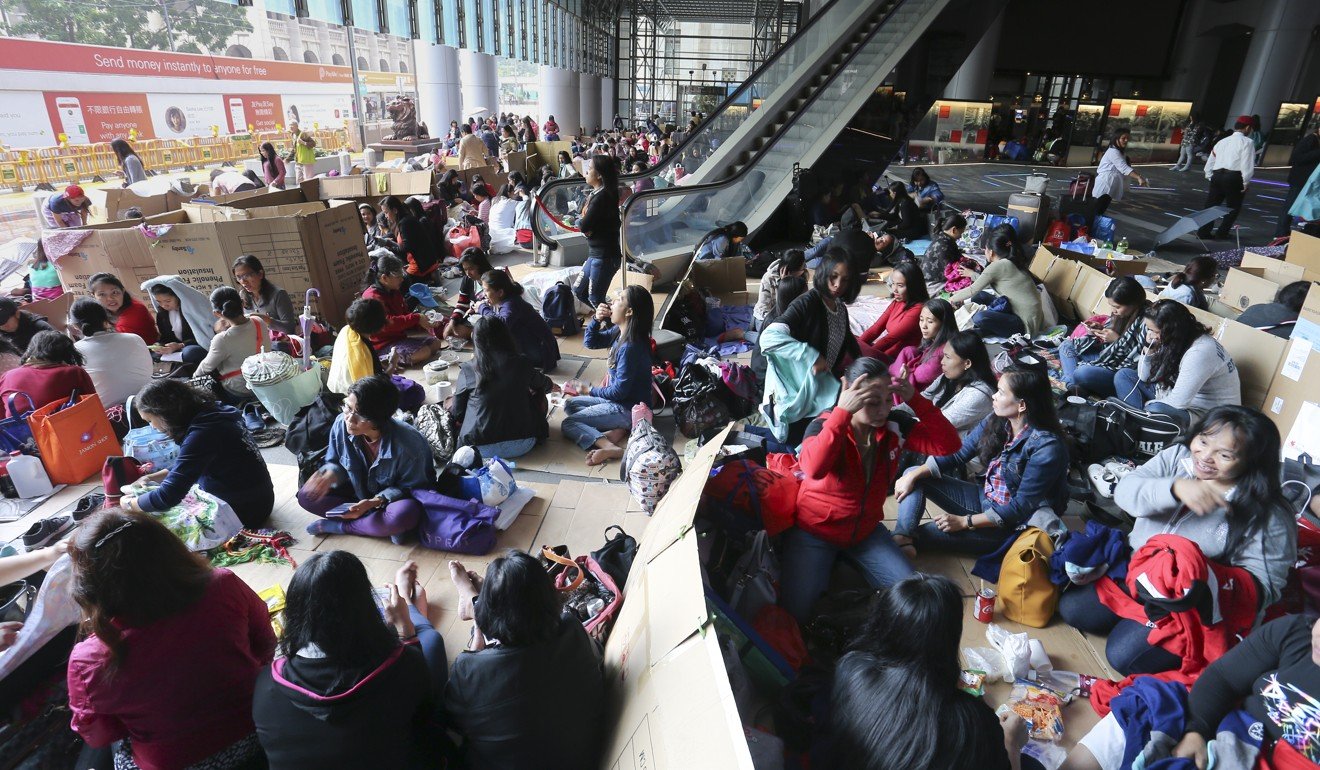
“Pretty shameful indeed. Was shocked when I saw it the first time. Helpers aren’t allowed in the pool area at all. Even sitting on the lounge chairs. It’s absurd,” wrote a third.
The Clearwater Bay Golf and Country Club says the sign was put in place because of a lack of space, saying the swimming pool is not a standard one and has limited space and capacity.
“We have provided benches at the seating area near the pool for domestic helpers, this is to avoid overcrowded [sic] at the poolside and to ensure all visitors’ safety,” it said in an email.

Cynthia Tellez, general manager of local NGO Mission For Migrant Workers, says the sign is discriminatory.
“This was an issue in the 1980s, and in the 1990s … While the management of the places where such notices were placed immediately removed the notices, the discriminatory mindset of some people remained,” Tellez says.
“Such acts are not only discriminating against domestic workers, but show little thought [for] the safety of children in the workers’ care.”
A club membership can prove useful but it comes at a cost - and a wait
The Equal Opportunities Commission (EOC) says factors such as who is eligible to use the swimming pool, as well as house rules governing the use of the swimming pool, would need to be considered before it could classify the case as discriminatory.
“Other factors are the rationale [for] imposing this restriction, whether the rationale is based on sound reasons and whether there is evidence to show that the policy would be detrimental to persons of a particular race,” says Sam Ho, the EOC’s senior corporate communications manager.
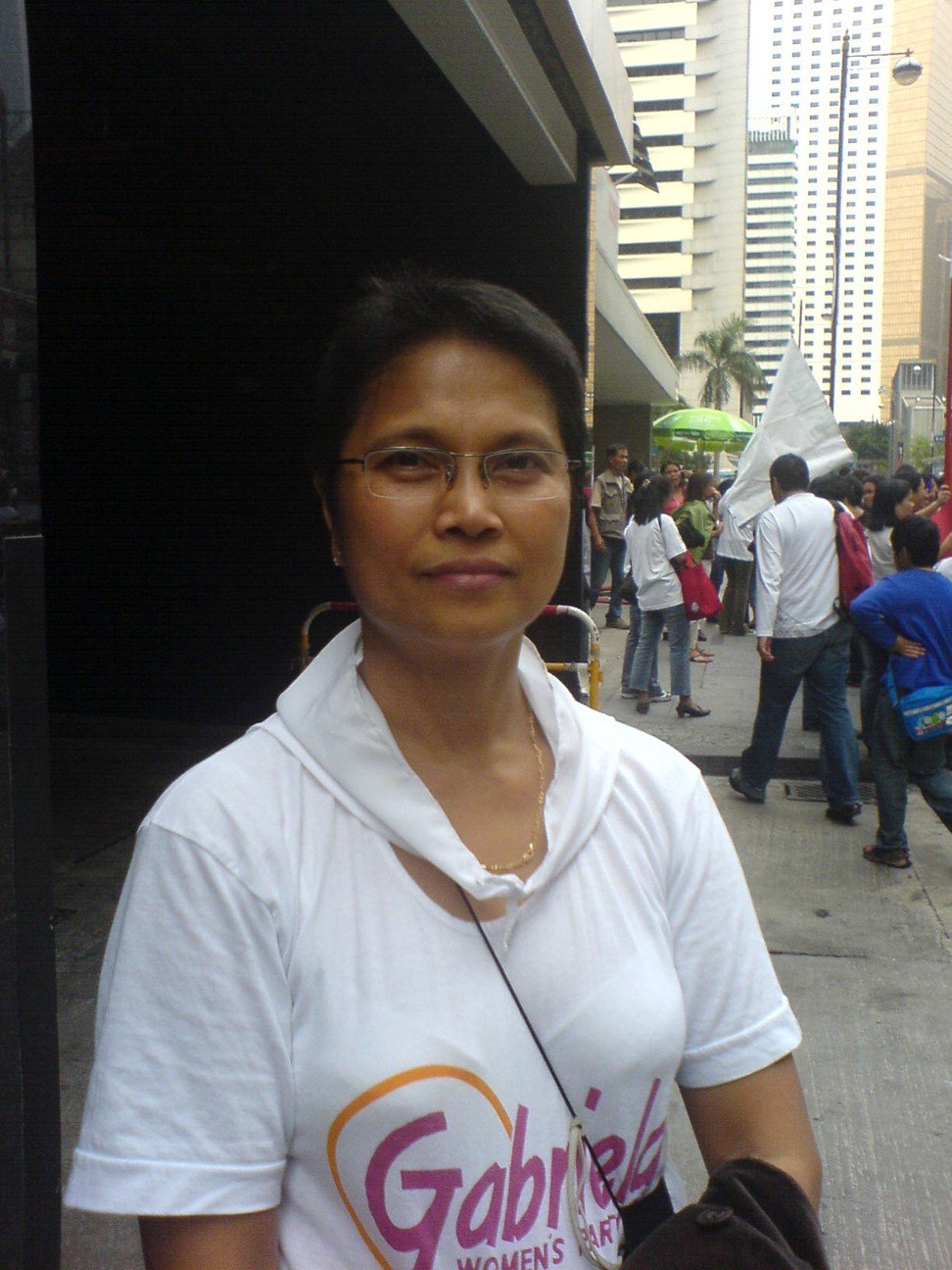
“If anyone feels they are being discriminated against regarding the use of that swimming pool on the ground of his/her race, he/she can contact the EOC for assistance.”
The Race Discrimination Ordinance was enacted in 2008 to protect people of all races against discrimination, harassment and vilification.
As another of those commenting in the online forum noted, the Clearwater Bay Golf and Country Club is not alone in imposing such restrictions on domestic helpers.
I was wrong: Hong Kong does need domestic helpers for elderly care
“This rule is in most clubhouses [and] in apartment buildings as well. Shameful and discriminatory,” the person writes.
According to the website of the Royal Hong Kong Yacht Club in Causeway Bay, domestic helpers are not allowed on club premises.
The Ladies’ Recreation Club on Old Peak Road, Mid-Levels, did not respond to a Post question about its policies governing the guardians of members’ children on its premises.
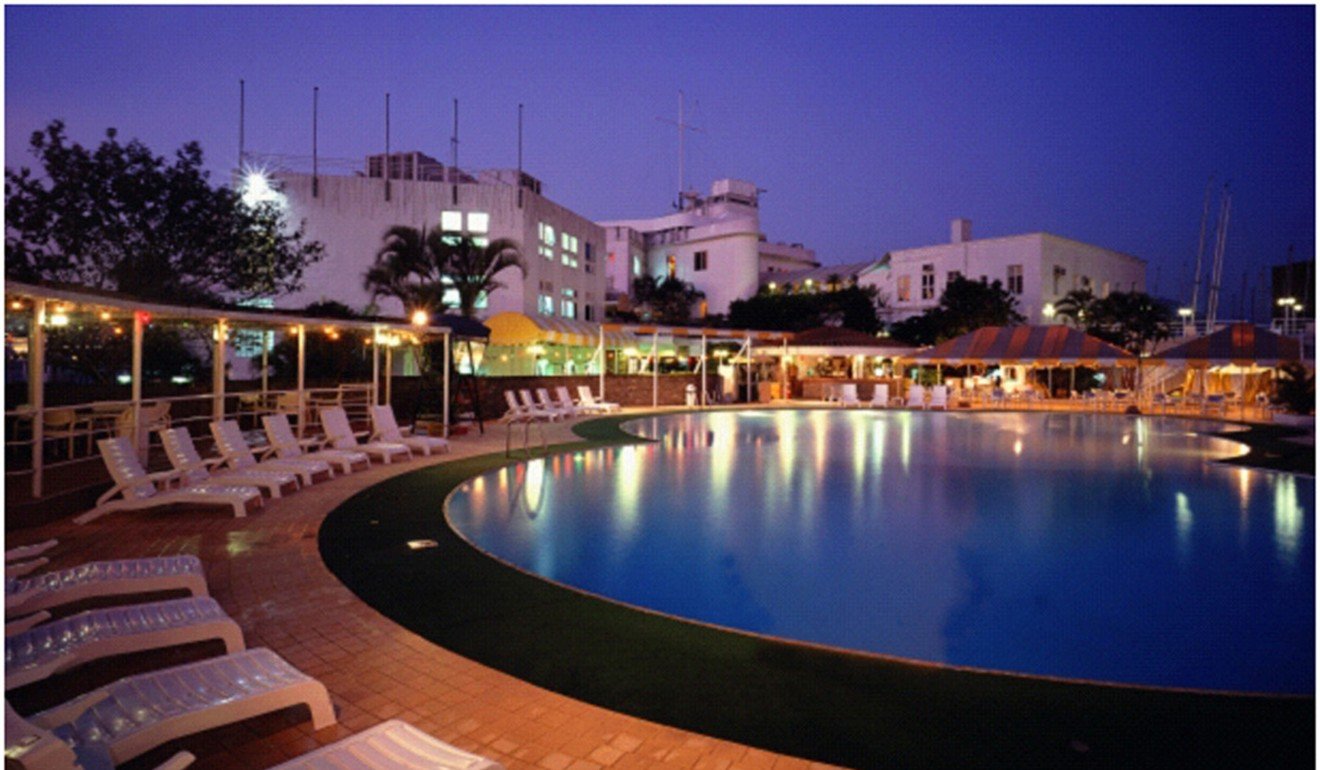
However, a member of the club, speaking on condition of anonymity, said she was uncomfortable with the club’s policy requiring helpers to wait in a separate room when collecting members’ children.
“For most of the time they have to sit in the guardian room while kids are attending lessons,” she says.
A spokesman for the Aberdeen Marina Club says family assistants are allowed to access the club only when looking after members’ children under the age of eight. Members are required to apply for a family assistant card for them, and can apply for a maximum of two such cards.
Hong Kong’s errant domestic helper agencies are everywhere and unafraid of the law
The American Club in Tai Tam has one of the most comprehensive list of house rules. Its website reads: “For the purposes of the House Rules all Secondary Care Givers, including but not limited to Domestic Helpers, Nannies, Drivers, Au Pairs, Amahs, Nurses etc will be referred to as Domestic Helpers. Domestic Helpers are not allowed at the Town Club …
“Domestic Helpers must register with Security each time they visit the Country Club and present this card to Staff and Management if requested. It is the responsibility of the Member to notify the Club should the Domestic Helper cease to be employed by the Member.
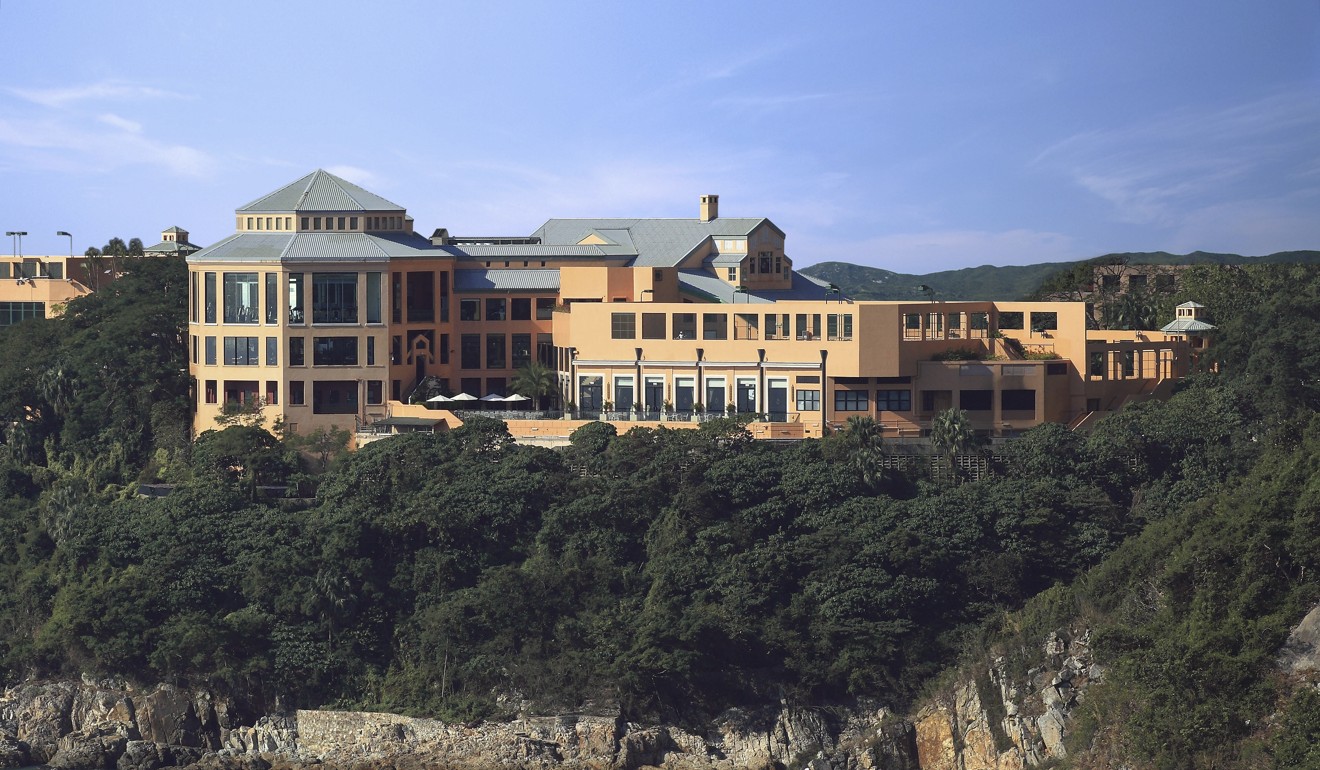
“Domestic Helpers are permitted only for the purpose of minding Members’ children in the Eagle’s Nest,” referring to a 10,000 square foot space where children can play with toys, do arts and crafts, or use computers, “or accompanying children to and from private functions, classes or lessons.
“Domestic Helpers must not walk through restaurants while going to these areas and must refrain from entering areas other than the Eagle’s Nest and locations where classes take place. Domestic Helpers must abide by the Club’s Rules and wait in designated areas of the Country Club and are not permitted to wait in any other areas.”
Hong Kong must stop clinging to the fiction of racial superiority and treat foreign domestic helpers with respect
Hong Kong has come under fire for its poor treatment of domestic helpers, of which the city has 370,000. Almost all of them are covered by a rule requiring them to live in their employer’s home, and some have complained of excessive working hours and inadequate accommodation or space to sleep. There have been some shocking cases of physical abuse.

